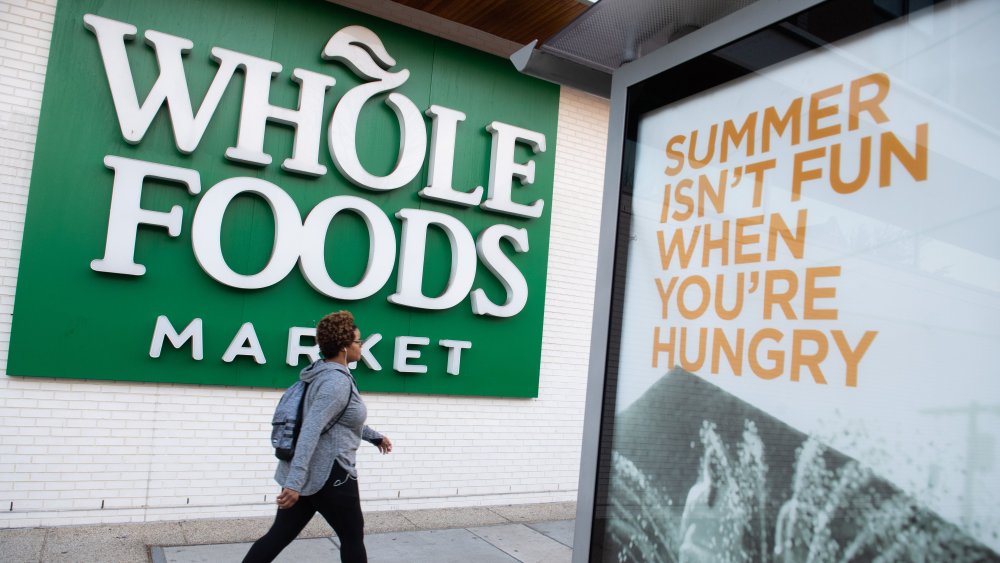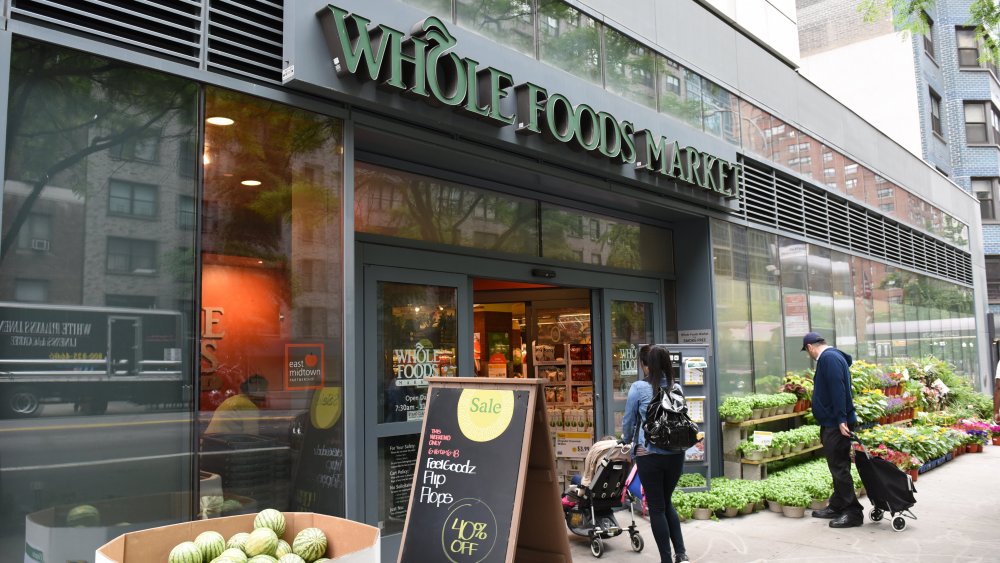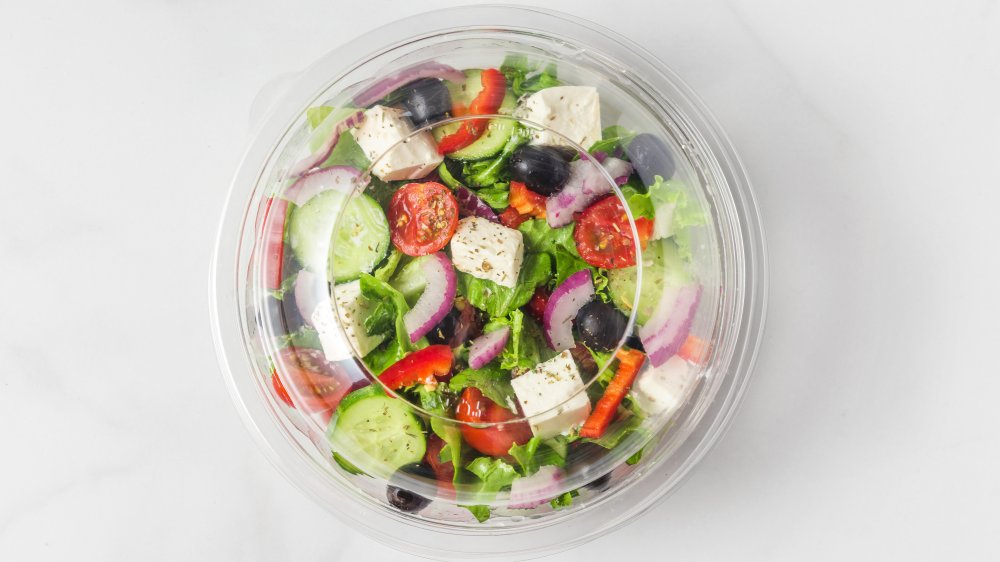Why You Should Never Buy From The Salad Bar At Whole Foods
The salad bar at Whole Foods might look like heaven, with its rows on rows of salad greens and dozens of intriguing topping options. But once you start piling on garbanzo beans, pesto, and shaved beets, things are liable to become more expensive than you initially anticipated.
According to celebrity dietitians The Nutrition Twins (via Business Insider), "If you want to make it a robust salad... you'll pay a pretty penny... which can easily turn a salad that costs $5 to make at home into a $25 splurge."
Once you take your concoction up to the cash register, it's priced by weight. Typically, stores charge $8.99 per pound (via Spoon University). Some first-time shoppers have misinterpreted this to mean that whatever can fit in their box will be charged $8.99, but that is incorrect and this line of thinking will result in an unwelcome surprise when you wind up in the check-out line.
How the Whole Foods salad bar works
Because everything is weighed at the same price, you don't have to keep track of what you've put on your salad. But this trick benefits Whole Foods enormously, as they are able to charge a huge premium on items that then sell in other departments of their store for far less.
Take, for example, baby spinach, which is a staple of any salad bar worth its salt. If you pick up your baby spinach from the salad bar, you'll pay $8.99 per pound for it, as was previously mentioned. However, if you pick up a prepackaged pound of baby spinach in the produce section of the store, you'll find it for around $4.99 (via Whole Foods). This means the salad bar markup is nearly 50 percent.
The same holds true for other salad greens such as spring mix (spinach, arugula, and other mesclun greens), which Whole Foods also provides on its salad bar. A pound of spring mix in the produce section is around $4.99 as well.
However, there is something to be said for the convenience of having the salad world at your fingertips, and there are times that you might fall prey to the plentiful charms of the Whole Foods salad bar. Some of the grains and toppings they offer simply aren't commonplace in the pantry or refrigerator of most shoppers, and sometimes you solely have the urge to try something different and new.
How to conquer the salad bar... if you have to
If you must make a salad from the bar, there are a couple of things you can do to ensure that you keep things fiscally responsible. For one, come up with a theme to your salad that will prevent you from piling on unnecessary ingredients. If you walk in with the mindset that you're going to make a Greek-inspired salad, you can grab your feta, your olives, and your tomatoes — and then get the heck out of Dodge before you find yourself piling on hard-boiled eggs, miniature carrots, and tortilla strips.
And this may seem obvious, but you should consider which foods weigh a considerable amount and which are lighter. While you don't really need to worry about taking tongful after tongful of spinach or arugula, scooping up large amounts of denser, heavier items like chicken breast is going to increase your salad's weight.
Eggs are particularly egregious offenders in the weight department. If you add a single hard-boiled egg to your salad, it can add a dollar (or more) to your bill. Compare this to the $2.99 you can pay in the very same store for a dozen eggs and ask yourself if it's really worth it (via Whole Foods). Of course, by using the salad bar eggs, you're really just paying for the convenience of not having to go home and hard boil the egg yourself, so whether this is worth it or not is up to you.


